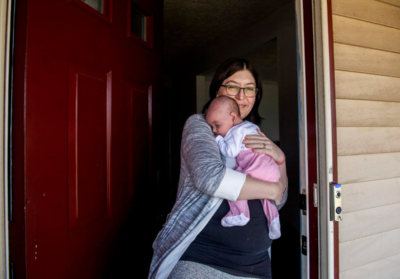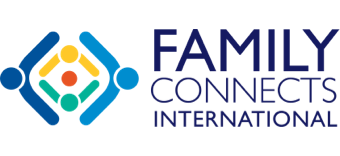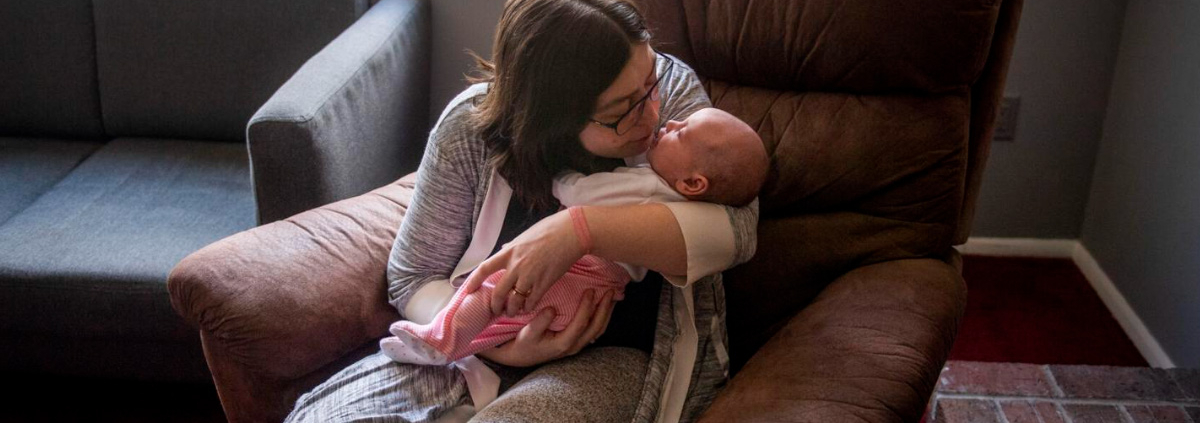County program offers at-home care to newborns, parents
By Emmett Gartner egartner@newspost.com
Mar 15, 2023
When a nurse from Frederick Health visited new mother Jamie Hodge and her weeks-old daughter Mallory, the nurse asked Hodge questions she hadn’t heard much since giving birth.
“How are you doing? What do you need?” the nurse, Gillian Carey, asked.
Hodge said those questions were common during her pregnancy, but waned as attention shifted to her newborn.
“It kind of makes you feel human again,” Hodge said. “It’s that moment where I matter. … And I think new moms kind of forget that.”
The program that dispatched Carey to Hodge’s home in Frederick — Family Connects Frederick County — was launched in January. It offers a home visit by a registered nurse to any family with a baby delivered at Frederick Health Hospital.
In 2022, Frederick County allocated $8 million of federal funding it received through the American Recovery Plan Act to create the program. Frederick Health, the county’s largest health care provider, was in charge of its implementation.
The foundations of the program were created by a task force within the local Health Care Coalition and leadership from Pilar Olivo, a liaison for the county’s Office of Children and Families.
Olivo and the task force have worked for years to raise awareness and reduce the prevalence of adverse childhood experiences in Frederick County. The new Family Connects program has aided in that initiative.

Staff photo by Katina Zentz. Jamie Hodge holds her infant daughter, Mallory, in their home’s doorway on Tuesday. Hodge has used Frederick Health’s at-home service, which includes visits from nurses and well-being assessments.
Frederick Health spokesperson Sara Jackson wrote in an email that 11 nurses are assigned to the program and 337 families have scheduled a home visit since Jan. 1.
That accounts for more than 80% of Frederick County families who have had a baby at Frederick Health in that time span, according to Jackson.
During visits, primary caregivers like Hodge and their infants get a health and well-being assessment and additional resources on lactation, nutrition and child care.
For Hodge, one of the most beneficial aspects of the program was the support Carey provided after the visit.
Hodge said Carey has been a pivotal source in answering questions and supporting her as she navigates being a mother for the first time.
“Any questions I had, no matter how insignificant I thought they were, she would answer them,” Hodge said.
That included questions about when to move up in diaper size for Mallory, concerns Hodge and her husband, Michael Hodge, had about Mallory’s weight gain, and general questions about formula.
Hodge said that although she and her husband have a robust family network to help with Mallory, it was especially beneficial to have a more objective expert in Carey to provide initial guidance.
“I knew that her being part of the hospital, she’s a mandated reporter to the state,” Hodge said. “So, if she found anything wrong with the baby, she was going to call. … I would want somebody to make sure the baby’s safe, no matter what the circumstances.”
For Carey, Family Connects has offered her an enriching professional experience through face-to-face time with families.
“I’ve never felt more fulfilled as a nurse in 12 years than I have sitting down with these mothers, having a conversation and supporting them through some of the hardest days that they will have with their newborn,” Carey said.
With that understanding of difficulty, Carey is sure to ask about the parents’ well being, like she did with the Hodges.
Jamie Hodge said it was when Carey asked how her husband was doing that she realized that question, too, was often overlooked.
“Her question stuck with me the entire time that she was here and even after she left,” Hodge said. “Nobody thinks to ask the spouse or the partner how they’re doing.”
Since Carey’s visit, Hodge has seen Mallory develop a unique personality, intrigued by trees in the family’s backyard and the deep pitch of male voices.
“She loves the deep voice,” Hodge said. “She is very good with her eyesight and her tracking, so if you’re talking, she will look for you. … And she loves looking out the window and seeing the trees move.”
Hodge said the prioritization Carey and others have provided her and her mental health have helped her be the best possible parent she can be to Mallory.
“You have to take care of yourself, your mental health, because if you’re not, that baby is not going to have the best version of you,” Hodge said.
Original article: Click Here



